SaaS Ethics Manifesto
Some SaaS tools give off good vibes (Notion, Ghost), others bad vibes (Motion, ClickUp). Why? It all comes down to ethics
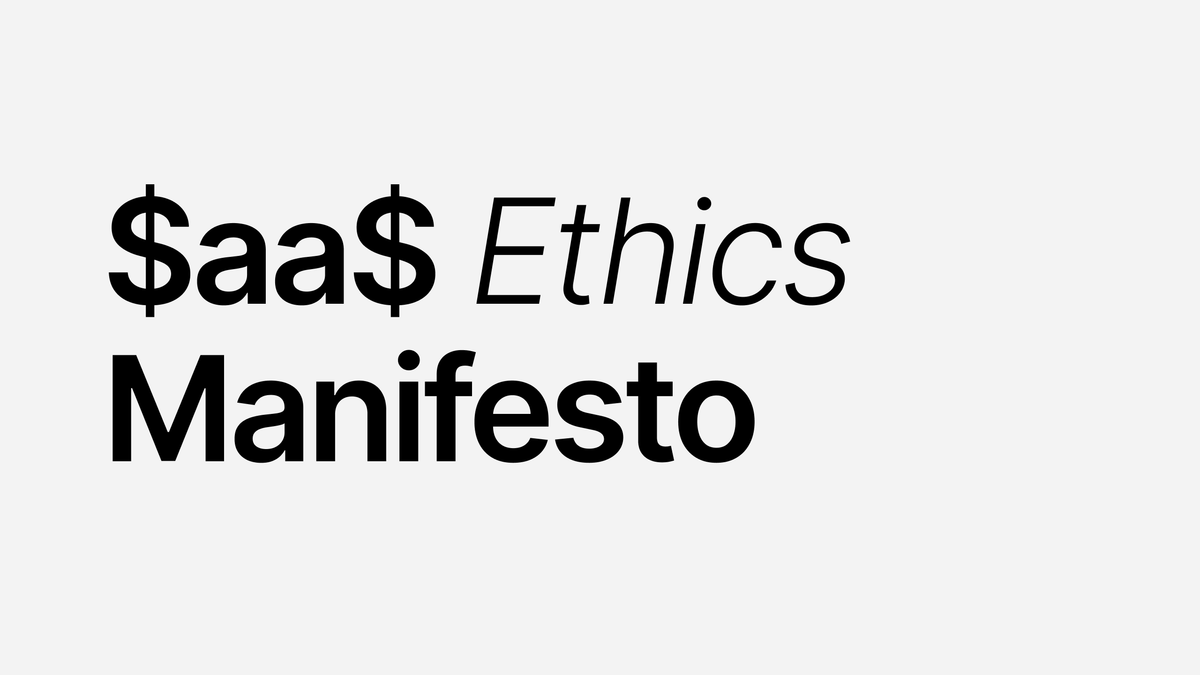
Every vendor has some vibes, positive, neutral, or bad. To me, Notion Linear, or Ghost have positive vibes, Slack is kinda neutral, while ClickUp or Motion have bad vibes. Why is that? I analysed my feelings and it all lead to... ethics.
As a result, I created my personal SaaS Ethics Manifesto. It's just a set of rules I will never break in companies I lead:
- Trials are always free, with no credit card required
- Purchases and renewals are fully refundable within 30 days
- Users can cancel anytime, with service active until the paid period ends
- Downtime and security incidents are disclosed openly, with postmortems for major events
- Data is always exportable, and every plan includes full API access
- No fake scarcity
- No fake customers logos and testimonials
- Products comparisons are honest
- Nonprofits, open-source, and educational projects receive meaningful discounts
- 🤔 (did not come up with anything decent, provide your ideas to complete the list!)
I think these rules are self-explanatory, but let's dig into them anyway and find some examples.
1. Trials are always free, with no credit card required
Exploring software should be easy. I personally don’t like any commitments behind paywalls. People tend to forget things, and surprising charges will follow. Some revenue for a vendor maybe, but headache for a person.
In real life so many vendors are doing it... For example, Motion provides 7 days (quite short period, to be honest) free trial and asks for the credit card right away. I had to provide it and cancel right away to not forget. Moreover, there is only annual plan available, so in case of sudden charge you will loose $600! Huh.
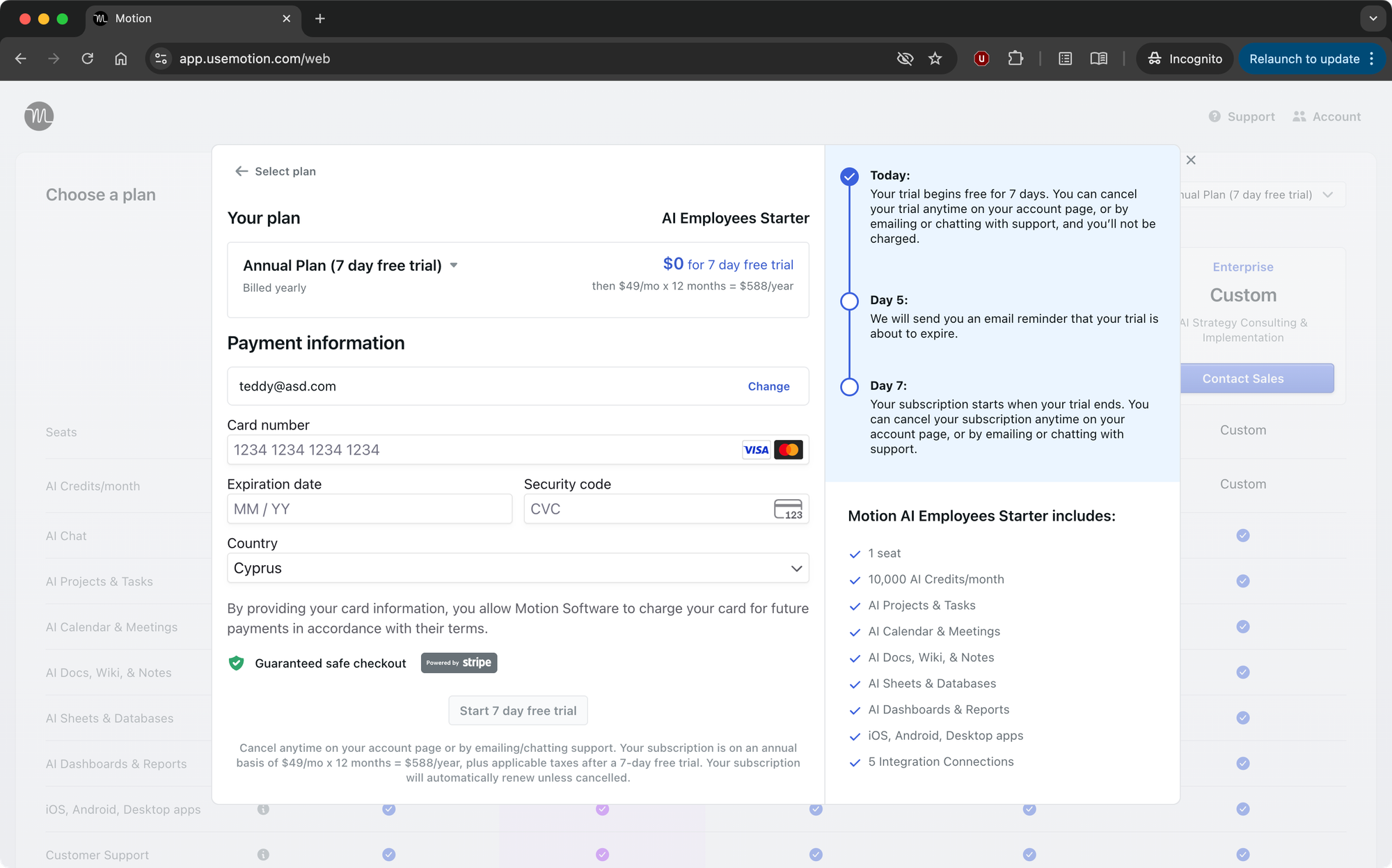
2. Purchases and renewals are fully refundable within 30 days
If someone feels the product isn’t right for them, we give their money back. Trust matters more than squeezing out some money.
Speaking of which, if you forget to cancel your Motion trial in 7 days, your $600 are gone 🤯, because...
Purchases are non-refundable; Motion is not obligated to refund any payments, but may do so at its sole discretion.
I think when you beg for it or make a public statement on Reddit you will get your refund anyway. By contrast, this is our policy:
Do you offer refunds? We do. If you've made a mistake while signing up for a paid subscription, accidentally added paid members to your workspace, or simply lost enthusiasm for Fibery, please reach out to us to us via chat
3. Users can cancel anytime, with service active until the paid period ends
No one should have to beg support to leave. Make cancellation simple and easy.
I have to admit, we broke this rule for years because we didn’t want to spend time building the functionality. We finally did it, but I still feel guilty for not doing it sooner 🥲.
4. Downtime and security incidents are disclosed openly, with postmortems for major events
Mistakes and failures happen. I always choose honesty, accountability, and learning over silence. We didn't have many downtimes, but when we did, postmortems followed.
Postmortems are often interesting to read, since they provide real life cases. Slack did it well, GitHub even decided to do monthly Availability reports, so cool!
5. Data is always exportable in open formats, and every plan includes full API access
Data belongs to the people who create it — not to the vendor. Any vendor should ensure it’s always portable and accessible.
I remember 10 years ago I had to purchase quite expensive Salesforce plan just because of API. This is crazy practice to me. I checked Salesforce today (for small business), and.., no change.
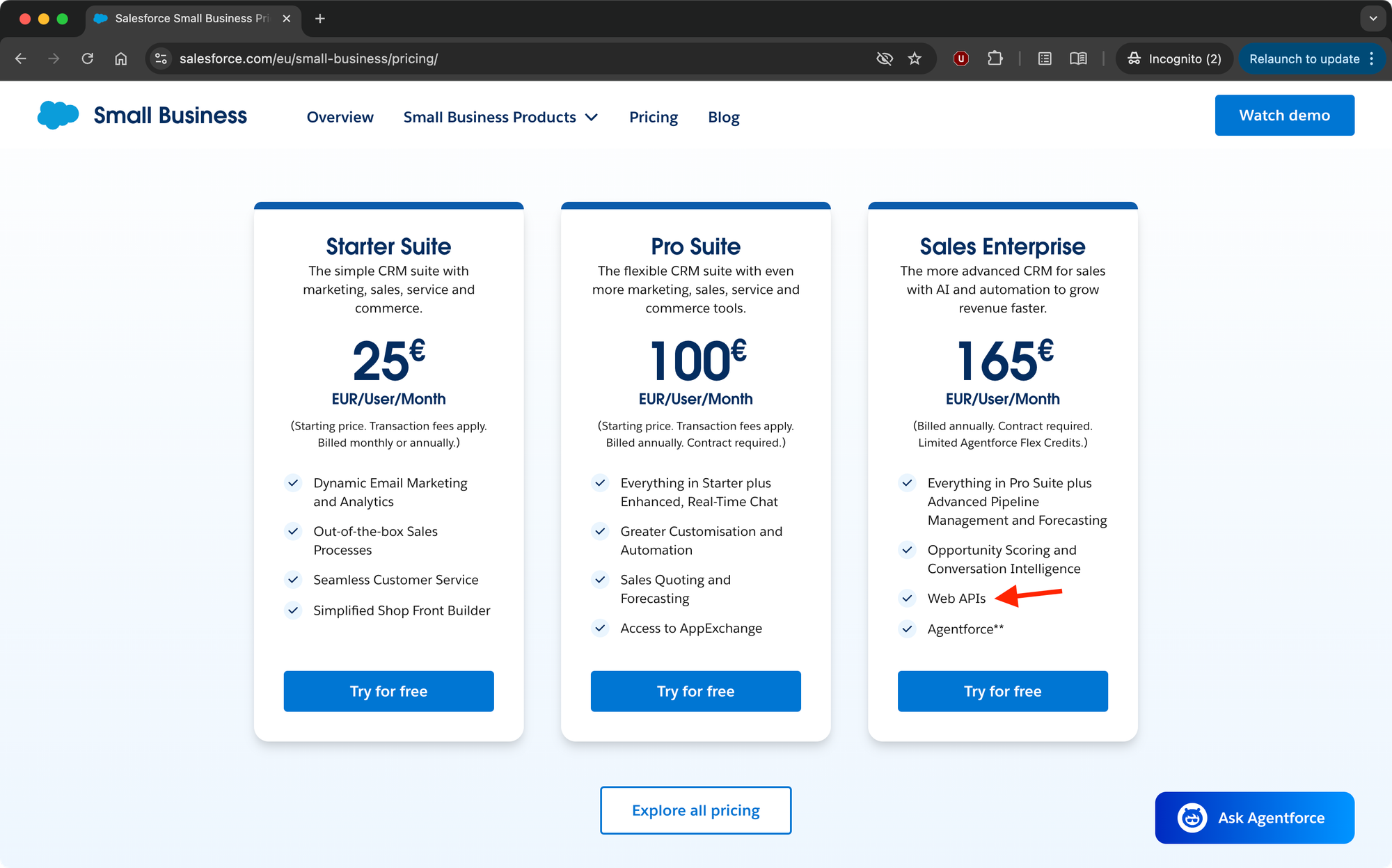
6. No fake scarcity
I believe artificial urgency is harmful. I dislike when products push sales at any cost — whether it’s Black Friday hype, "50% off for 24 hours", or "only 3 tickets left". That’s why we never use these tactics.
Udemy case is particularly telling. They used machine learning to show fake base price and make it look like you have a really good discount. Well, it costed them $4M.
Udemy has agreed to pay $4,000,000 to settle a case alleging it advertised fake discounts for its courses.
— Rob Freund (@RobertFreundLaw) April 28, 2023
Remember: using fake reference prices to run sales is illegal under the FTC Act and California's laws. 1/ pic.twitter.com/faqA2tu9An
7. No fake customers logos and testimonials
Sometimes you visit a new startup and see some really cool logos, like Coca-Cola, Microsoft, etc. It is quite clear for any experienced SaaS vendor to feel that something is off. Maybe a single lead with @microsoft.com domain is enough to put the logo into the home page? Or maybe a pilot is enough? Very rare such things become public, so 11x.ai story is a nice exception.
Recently I stumbled upon Breeze website. Quite small company, quite weak product, quite famous customers. Customers page has all these loud logos, but testimonials are from very small companies only. I think they mislead leads.
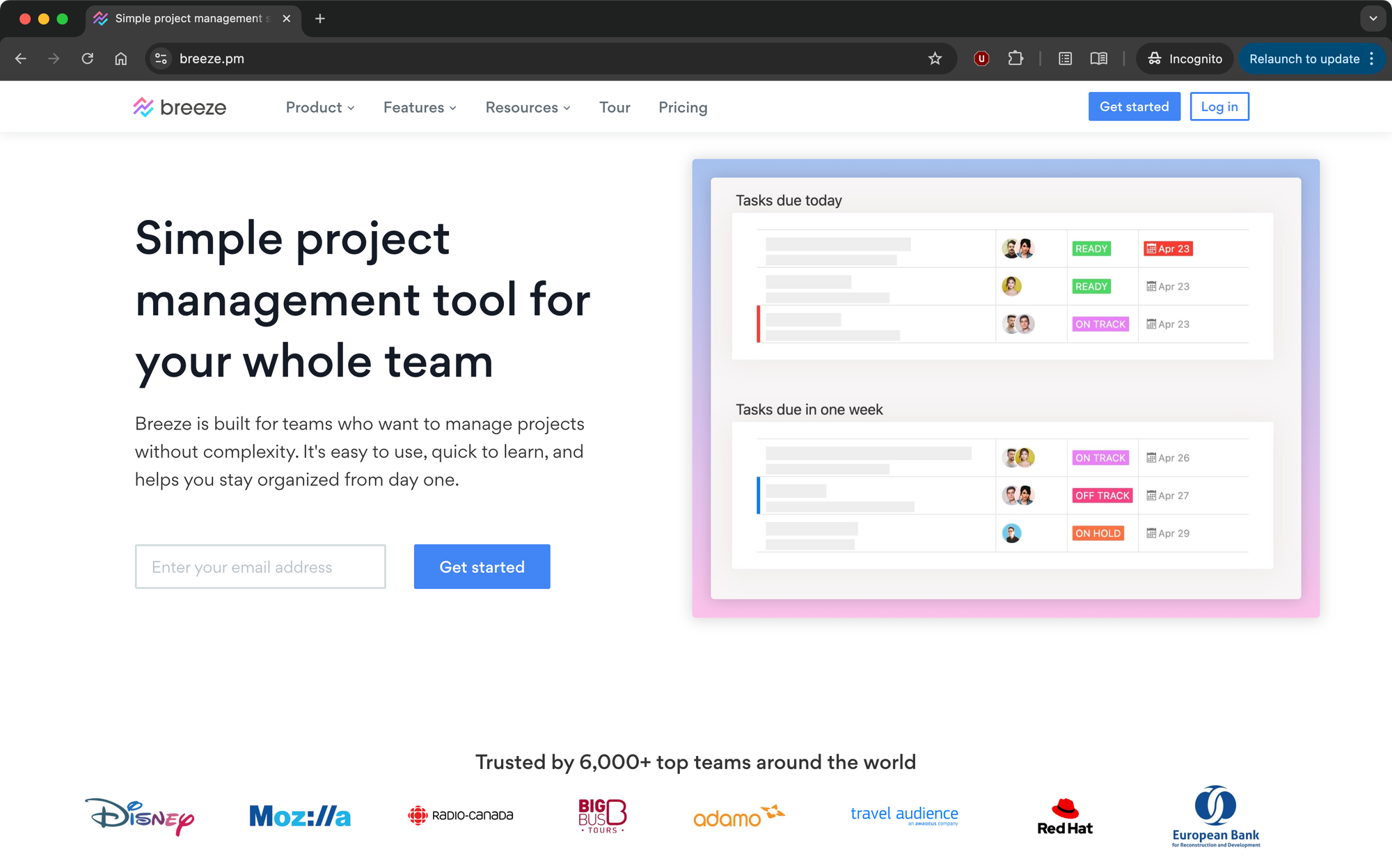
We decided to not put logos at all on our homepage so far. While we do have some quite well known customers, they are not as famous as Disney or Red Hat.
8. Comparisons are honest
When we compare Fibery with other products, we try to do it honestly (and mention that the comparison is still biased). Our goal is to inform and empower, not to just sell.
This rule is so hard to follow and very few vendors are doing it. Even Notion can't resist putting all ✔️ into the Notion column (but still they're more honest than ClickUp).
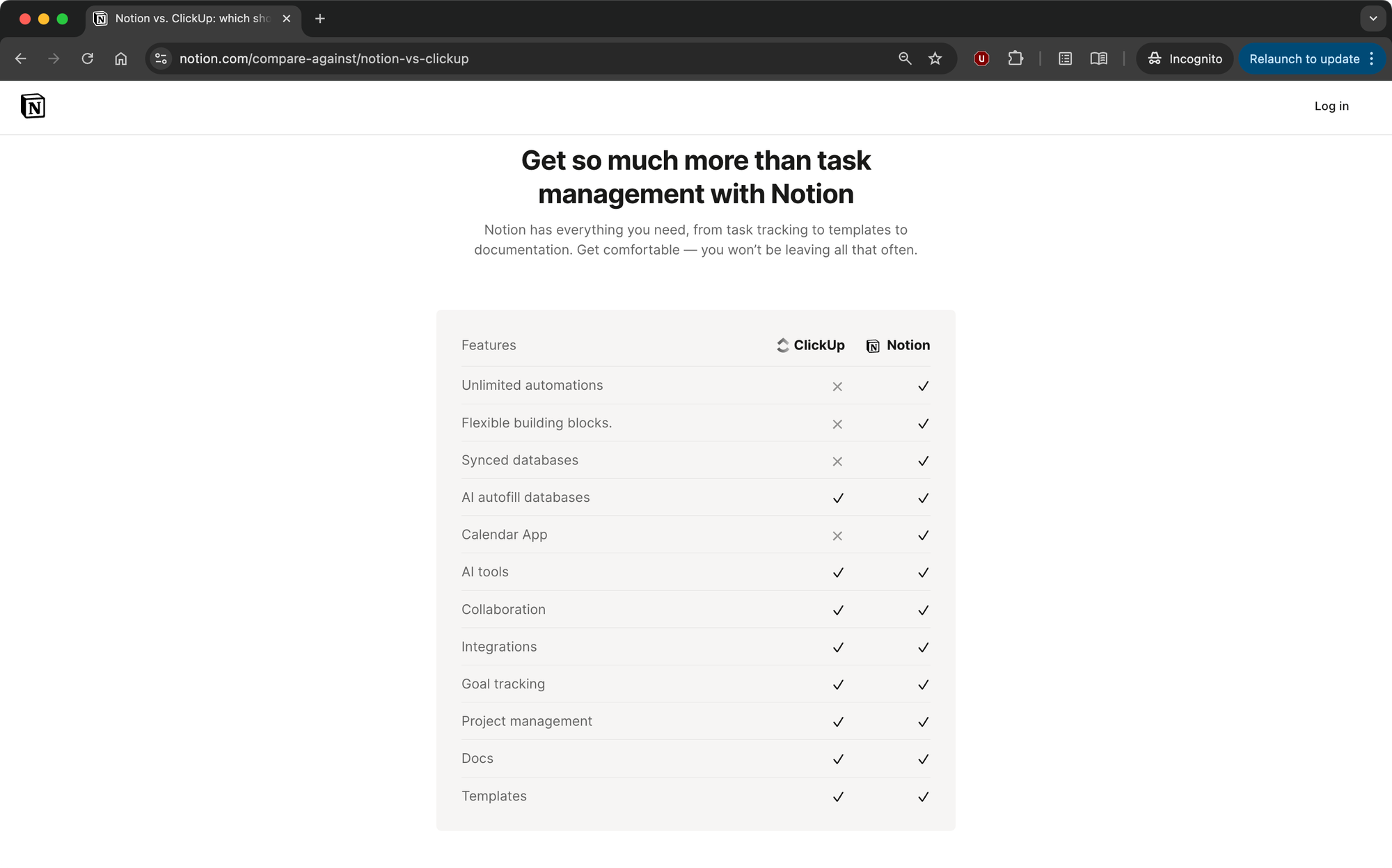
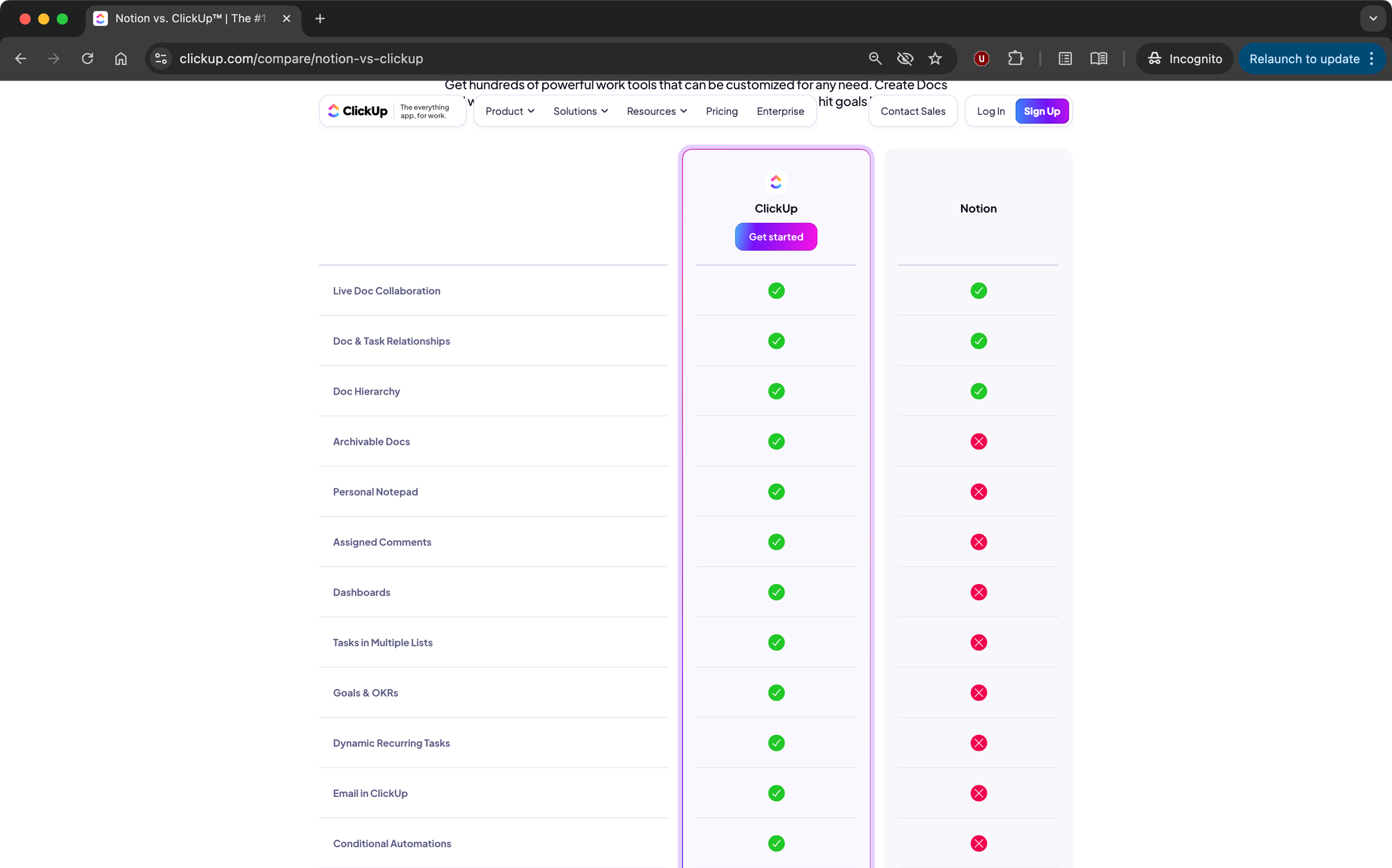
Notion vs. ClickUp vs. ClickUp vs. Notion
9. Nonprofits, open-source, and educational projects receive meaningful discounts (50% is a good start)
We want to support communities that make the world better. Offering at least 50% off is one way we can help.
I think this practice is widespread, which is good! We also decided to support startups 🚀 (6 months for free) and Ukrainian companies 🇺🇦 (50% discount).
10. Suggest something to make this list nice and round
🤔...
P.S. I also hate SEO, but not sure it is fair to include it into the manifest. What are your rules?
